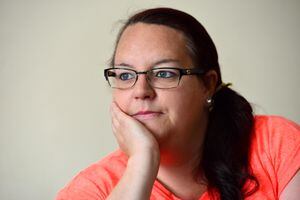Telford mother: I owe it to my Jack to fight for change
A Telford mother is calling for all pregnant women to be routinely tested for group B Strep bacteria, which killed her newborn son.

Each week in the UK, one baby dies and another is left with a long-term disability as a result of group B Strep infection.
Rarely harmful to adults, it is the UK’s most common cause of severe infection in newborn babies, causing sepsis, pneumonia and meningitis.
Despite Jack being her second child, Hayley Matthews, from Stirchley, had not heard of group B Strep when she was admitted to the Princess Royal Hospital, in the town, to give birth after a straight-forward, normal pregnancy.
Jack was born on March 15, 2015, but only lived for eleven hours.
A post-mortem revealed that he had died from fluid on the lungs caused by a group B Strep infection, as well as being starved of oxygen to the brain.
Hayley is one of a number local families involved in the NHS Improvement (NHSI) review of care at The Shrewsbury and Telford Hospital NHS Trust.
She said: “It’s been a living nightmare since I lost Jack. I’d never even heard of group B Strep. No one in the medical profession had told me about it and I owe it to Jack’s memory to fight for change.
“All pregnant women need to be informed about group B Strep and not left in the dark, like I was. It’s like there’s a wall of silence around group B Strep and when you’re given so much other advice as a pregnant woman it seems ridiculous that something that could kill your baby or leave it with a long-term health condition is not mentioned.”
Test
The UK does not routinely test for group B Strep, which causes a range of serious infections including pneumonia, meningitis and sepsis, unlike the United States, Canada, Germany, France, Spain and many other developed countries where all mothers-to-be are tested.
The bacteria may be passed unknowingly from a mother to her baby around birth, and kills one baby a week in the UK and leaves another with a long-term disability, like cerebral palsy or hearing or vision loss.
Most group B Strep infections in newborn babies can be prevented by testing the mother late in pregnancy and providing intravenous antibiotics during labour to those who test positive. This reduces the risk of a baby developing a group B Strep infection by up to 90 per cent. The test would cost the NHS just £11 and costs from £35 privately.
In the UK, there has been a rise of almost a third (31 per cent) in the rate of group B Strep infections in babies under three months of age since 2000, despite risk-based prevention guidelines being introduced in 2003.
By contrast, in countries that routinely test pregnant women for group B Strep carriage, the incidence has fallen dramatically, by up to 86 per cent. The rate in the United States of early-onset GBS infections (those in the first six days of life) is now less than half that of the UK.
Hayley Matthews is supported by the Group B Strep Support charity (gbss.org.uk).
Jane Plumb MBE, chief executive and founder of Group B Strep Support, said: “The current UK policy on group B Strep is not working.
“At present, pregnant woman are assessed for risk factors for group B Strep developing in the baby. However we are missing lots of babies whose mums don’t have risk factors but do carry the bacteria.”
Hayley Matthews said: “A simple swab test could save a baby’s life and if I can help to get that message out there by sharing Jack’s story, then dealing with his death is a tiny bit easier.”
Since late 2017 the Royal College of Obstetricians and Gynaecologists guideline on group B Strep has recommended that all pregnant women should be provided with a leaflet on group B Strep during pregnancy.





